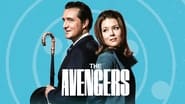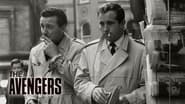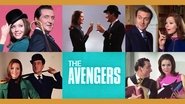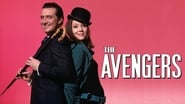alexanderdavies-99382
In spite of how "The Avengers" series is best known, the opening season was a completely different kettle of fish.The season from 1961 - mainly missing sadly - was more of a conventional police thriller. None of the programme's quirky humour was displayed, there was no female leading character and John Steed was technically the second lead behind Ian Hendry as Dr. David Keel. The general synopsis was usually as follows: Keel would be approached by Steed who would seek the good Drs help in the fight against the latest villains of the show. Dr. Keel was most reticent about becoming involved in Steeds assignments but invariably was.Only 3 episodes from 1961 exist and including the first 15 minutes of the opening episode.Judging by the existing 3, the more gritty and realistic style works very well. Ian Hendry and the only John Steed - Patrick Macnee - compliment each other. After Ian Hendry decided to focus on a film career, Patrick Macnee was made the show's leasing character. In addition, he would be the actor who would appear in more episodes than anyone else. The series seemed to struggle in finding it's form/style. The characters of Dr. Martin King and that of the pop star Venus Smith, aren't all that interesting but one or two episodes they are in are quite good.When Honor Blackman joined the series in 1962 for its second season, everything changed for the better. The series became ground-breaking in having a regular female character who was just as tough, brave, resilient and intelligent as John Steed.The second and third seasons feature some marvellous episodes - too many to list them here. The series was firmly established as a huge success with Britain and the two leading actors became very popular with the viewers.With Honor Blackman leaving in 1964 to appear in "Goldfinger" opposite Sean Connery, major changes were about to occur for "The Avengers" series.Having been shot on video and in whole takes as though filmed live, now the show would be filmed on film and eventually in colour. In particular though, the most popular female character of them all would help tremendously in pushing the series to its peak of popularity - Diana Rigg as Emma Peel.The on-screen chemistry between the characters of John Steed and Emma Peel was both natural and highly effective. The episodes were better than ever - several masterpieces are included and eventually, America became interested in securing the rights in broadcasting "The Avengers."It came as a bit of a shock when Diana Rigg announced she was leaving the series. She had made the Emma Peel character her own.For my money, the series declined in overall quality. The rather eccentric humour from the Emma Peel era worked for those episodes. Now with Linda Thorson was cast as Tara King, the stories became a bit too silly and I find many of the last season's episodes rather irksome.The other problem I find with the last episodes, is that Linda Thorson has neither the acting ability nor the kind of personality that Diana Rigg brought to "The Avengers." 1969 was the right time to bring the series to a close. It had lasted over 180 episodes since 1961 and has earnt its place in British television history.
marqymarqy
Barring The Prisoner, Star Trek (with Kirk and Spock) and Thunderbirds, The Avengers is the best 1960s TV series going - you can have hours of fun pretending to be John Steed by bellowing "MRS PEEL" at everybody in your life knowing that few of them will know what you mean - but will laugh anyway. Note the opening credits of the Emma Peel Colour series (1967), where Steed (Patrick Macnee)wobbles while standing on one leg proferring his furled umbrella. Some of the stories here have not been screened in the UK since 2001 - and then only on Granada Plus where they were edited down from original run times of 50 minutes to 46 to accommodate ever longer advert and trailer breaks; and in the case of the final episodes of the Tara King series (1968-9) this amounted to the removal of the tag scene which closed every episode. Thusly, volumes 7 & 8 of the Tara King series have been known to achieve ridiculously high prices in Ebay auctions - these being the episodes most rarely screened in their entirety - Channel 4 ran them in full in late summer 1997 in an early Friday evening slot. Some may choose to source their Avengers fix by buying the much better priced Dutch DVD releases (re-titled "Der Wrekers") but with the confusion that they sequenced their discs with a different running order to the UK issues. Oddly, even these do not follow the exact order in which the stories were originally transmitted or filmed (Dave Rogers' exquisite books The Avengers (1983) and The Ultimate Avengers (1995)tell you everything you need to know about this) Let's hope the whole set from Ian Hendry's one remaining 1961 videotaped episode ("The Frighteners") to Joanna Lumley's miniskirt marvel "Emily" from 1977 are all given re-releases on DVD at prices lower than you'd expect to pay for an thoroughbred Ferrari or an undiscovered Titian – which happily they now have. But what price would be paid to that enterprising and either exceptionally wealthy or well connected (pun intended) person who owns original video recordings of those 1961 episodes that ITV hadn't got room for in their apparently tiny vaults? Dream again - and dream harder,sweet cousins.
jamesraeburn2003
The adventures of a suave British agent John Steed and his sexy female sidekicks...This highly popular and long running spy show was the brainchild of Canadian born producer Sidney Newman. It began life as a medical crime drama called "Police Surgeon" starring Ian Hendry as Dr David Keel a pathologist working for the London police. When this failed to take on with the public, the character called John Steed was created. In the first episode of the revamped show renamed "The Avengers", John Steed helps Dr David Keel to avenge the death of his wife because he happened to be after the same man. Steed and Keel would collaborate many more times to rid the streets of criminals. The new show took on much better but Ian Hendry departed after the first series and was replaced by Honor Blackman as Cathy Gale, the first of the better known sexy sidekicks that would put the show firmly on the British TV show map. Blackman lasted two series and was then replaced by Diana Rigg as Emma Peel, a sexy auburn haired leather cladded woman who was expert at karate as well as having skills in a wide range of subjects such as chemistry. By now John Steed's English gentlemen image had been fully opened up, his bowler hat and umbrella was inspired by the film "Q-Plains". Steed's image also consisted of suave suits and he drove vintage cars, first a 1927 4 and a half litre Bentley and occasionally a speed six Bentley (circa 1926) and later a 1927 Rolls Royce Silver Ghost in the Linda Thorson series. In one or two episodes, Steed could be seen driving a 1927 Rolls Royce Phantom One. Emma Peel drove a 1966 Lotus Elan and Tara King was often seen behind the wheel of a Lotus as well.By now the show had cracked the American market and it's success lead to the use of colour film for the last two series. Diana Rigg left in 1967 and her replacement was a young Canadian actress called Linda Thorson who played a young agent called Tara King. There was initial doubts about her suitability to the part, but the script writers modelled the character as a young agent who Steed was grooming and her skills developed as the series progressed. The series was a tremendous success in the UK, but in America it was less so. Therefore in 1969 the show was cancelled. However, in 1976, a revival series entitled "The New Avengers" surfaced co-produced by original producers Albert Fennell and Brian Clemens and a French production company (see separate review). Alas, financial problems saw the show cancelled after a year."The Avengers" is without doubt one of British TV's finest hours. In almost every episode superb character actors were drafted in to support Macnee and his co-stars. The plots were usually tight and the combination of fantasy and a unique brand of British humour rose the show well above the average sixties spy show. The most representative segments of the show are without doubt the Diana Rigg and Linda Thorson series. The Honor Blackman series has dated badly because the primitive video tape production techniques are less effective than the later filmed episodes and the style of the show was never really opened up until Diana Rigg joined the show. The writers most associated with the look of the programme are Brian Clemens and Philip Levene. There is only one episode of the Ian Hendry series left in existence and the majority of these were transmitted live.Finally, here is a list of my recommended episodes, all are available on DVD.Diana Rigg series: "The Gravediggers", "The Master Minds", "What The Butler Saw", "Room Without A View", "Epic", "The Living Dead" and "The Forget Me Knot" (in which Emma Peel left and Tara King joined).Linda Thorson series: "Love All", "Requiem", "The Morning After", "The Rotters" and "Bizarre" (the very last episode in the series saw Steed and Tara take off in a rocket).
schappe1
Honor Blackman then left the show to play Pussy Galore, (what name!) in Goldfinger. The producers decided to retool it. They not only got a new actress but they made several other decisions that impacted the nature of the show. They wanted to market it to America so they shot it on film. This allowed for outdoor shooting and most of the scenes in the 1965-66 monochrome series take place out of doors. It also allowed for more frequent cuts. This increased the pace of the show dramatically and allowed stunt men to turn the fight scenes into choreographed works of art. And the music became much more a part of the show with Laurie Johnson's driving upbeat theme becoming one of TV's classics. After striking out with Elizabeth Shepard, a new actress, Diana Rigg, was hired from the Royal Shakespeare Company. I think she was a huge improvement over the dower, inexpressive Honor Blackman. Rigg had a light comic touch that was both charming and appropriate to the lighter stories that were being done. The headlines of the early 60's and the James Bond movies had brought on a public demand for shows that were about global threats and incorporated science fiction. Now, instead of halting the smuggling of perfume, the Avengers were going to save the world, or at least the British Empire. There was also the new infatuation with all things British on American Television. The show became a comic spoof of people's image of England, full of pompous aristocrats, old soldiers, butlers, nannies, etc. As MacNee has said, from this point the program was mostly a comedy, although it retained enough drama to it to tether it to earth, as in the classics `Too Many Christmas Trees' and `The House that Jack Built'. Towards the end, however an air of silliness crept into the program with shows like `The Girl From Auntie' and `Honey for the Prince', (both of which feature the gorgeous Rigg wearing less than she does in the more famous `A Touch of Brimstone'). Then came the color Rigg series of 1967-68, the first to be shown simultaneously on American TV, (and the first time I saw the show). Now there was an emphasis on `Swinging London' and Carnaby Street fashions. Rigg wore more clothes and more and more outrageous ones. There was a greater tendency to shoot indoors in sets that could be as outlandish as Rigg's clothes. There were fewer episodes that had real dramatic content to them. It was more and more a romp, although this series contains what I think is the best-ever Avengers episode, `Death's Door'. Then Rigg left and they brought in the lovely and charming Thorson. The show now became a total comedy, closer to `Get Smart' than `The Man from Uncle'. It was so lightweight it threatened to float away. And when the 1968-69 season was over, it did, to live on in re-runs that have never ended.
They brought it back a decade later, as `The New Avengers', this time heavily influenced by the popularity of `Starsky and Hutch'. MacNee was now the mentor to a couple of younger operatives in a much more violent show. It was gone after a year.The final incarnation of what began as `Police Surgeon' was the horrible 1998 film version, which tried to turn the series into Star Wars, fully copying several scenes from that film series. It featured the charmless Ralph Fiennes as Steed, (why not Hugh Grant!?!). Uma Thurman should have made an excellent Ms. Peel but somehow she looked like a teenager. Sean Connery agreed to play the villain but must have wondered why he did so.The failure of the film presumably ends the saga, leaving us with the tapes and DVDs of the old series to remember it by. I think the 1965-66 season is the really classic period of the Avengers, especially about the first 20 episodes. The second Rigg series and the Thorson series are also very entertaining. The Blackman shows are really a different show, but good in their own way. Maybe someday we can see the Hendry shows. The revival attempts since the heyday were best forgotten.












